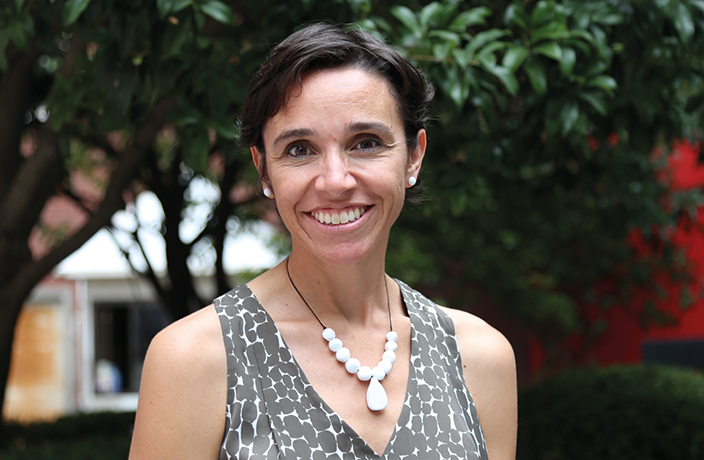Pilar Dieter has been in China for nearly a decade now and has made her way to the top as an executive working with Fortune 500 companies. She came to Shanghai from San Francisco after riding the dotcom wave of the 90s. When things had slowed down, she and her husband David decided to take a much-needed sabbatical and traveled the world for a year, with China being one of their destinations. Thirty-two countries later, they decided to make the Middle Kingdom a permanent home and have been here ever since with their family of four. Here Pilar tells us about her successful career and family in Shanghai.
Give us your career story.
Once in Shanghai I joined a consulting firm and was with them for four years and then moved on to Solidiance about five-and-a-half years ago. So our business is all about growth strategy and we work with large Fortune 500 companies to help them figure out their sales strategies and gaining market share in Asia. I am one of four partners here and I oversea north Asia, which is mostly China and some businesses in Korea and Japan.
Did you always imagine yourself working abroad?
I always envisioned myself having an overseas experience like this. My mother was a Foreign Service officer and I was actually born in Tehran, but spent very little time there. That experience, even though I was an infant at the time, was significant, as she would always talk about her work there. Also, my mother is Mexican and I would spend three or four trips per year going to Guadalajara, so I’ve always had an exposure to other parts of the world. Academically, I was always really focused on international affairs and government with a business theme, so it was something I’ve always strived for.

What is the biggest challenge of working in China compared to the US?
To be honest, I would put it the other way around. The ease of access here and the kinds of companies and people that I work with are relatively seasoned professionals and executives. Just attending a chamber event or a small dinner, you can always work your way in. I feel like the accessibility here to integrate with folks of that ilk is much easier compared to what I experienced back in the States. Shanghai, to me, has been an enabler in terms of making things easier professionally.
What is it like being a female executive in China?
The reality is that many of the other executives are also Westerners, so [being a female executive] is not all that different [than in the US]. I feel that being here – because of their international perspective and their more diverse awareness – there is much more encouragement. In China, I feel that I’ve gotten a lot more recognition and easier access to management, not just because of being a woman, but more because you’re given an environment where you can prove you&rsquo%3


















